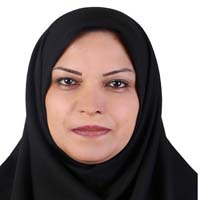The Assessment of Frontal EEG Asymmetry according to Neuroticism and Extraversion Dimensions
Nowadays, the study of neurological infrastructure of personality traits has a special place in neuropsychological research. According to Eysenck, the correlation between personality and behavior is the result of individual differences in the brain function. The purpose of the present study was to investigate the frontal EEG asymmetry according to neuroticism and extraversion dimensions.
The statistical population of the present study was all male students of Payame Noor University of Tehran, who studied in the academic year of 1963-96. Based on the final scores of distribution in two dimensions of extroversion and neuroticism, four groups (extroverts, introverts, neuroticism and emotional stability) with 25 subjects were selected. The subjects completed the Eysenck Personality Questionnaire- Revised, Waterloo Handedness and footedness Questionnaires-Revised, and their eyedness was assessed, then the electrical activity of the brain of the subjects was recorded through EEG from different points on the scalp.
The findings of the study show that there is no significant difference between the four groups in the right frontopolar (FP2), right middle frontal (F4), right lateral frontal (F8) and right frontal cortex (RF) in alpha activity. There is a significant difference between the left frontopolar (FP1), left middle frontal (F3), left lateral frontal (F7) and left frontal cortex (LF) between the four groups (P<0.01); as alpha wave activity on left regions in neurotic and introverted individuals is more than emotional stable and extroverted subjects.
In general, the findings of the present study strengthen the relationship between personality dimensions and frontal EEG asymmetry.
-
The Effectiveness of Cognitive Acceptance and Commitment Therapy on Improving Family Functioning, Marital Life Satisfaction, and Rumination in Women with Obsessive-Compulsive Disorder
*, Amin Rafieipoor, Zahra Nameni
Razavi International Journal of Medicine, Winter 2025 -
The efficacy of cognitive-behavioral therapy and mindfulness-based cognitive- therapy in perfectionism of patients with migraine headache
Marziyeh Sargoli Shahkhaseh, *, Mohammad Shakeri
Journal of Research in Psychological Health, -
The Effectiveness of Acceptance and Commitment-Based Intervention on Resilience, Anger Management and Quality of Life in Mothers of Children with Attention Deficit/Hyperactivity Disorder
*, Elham Khalil Abadi, Amin Rafiepoor
Empowering Exceptional Children, -
The role of psychological Inflexibility and Health bielifes, in psychological well-being of cardiovascular patients
Alireza Moradi, Jafar Hassani, Mahmoud Borjali, Bayane Abdollah Zadeh *
Quarterly of Clinical Psychology Studies,



